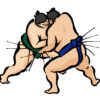What does “seyakedo” mean? What in English? せやけど

Occasionally, the word “seyakedo(せやけど)" appears in Japanese conversations. It is especially common in the Kansai region.
Similar words to “seyakedo" include “seyakate(せやかて)", “seyasakai(せやさかい)", “seyattara(せやったら)", “seyanoni(せやのに)", “seyane(せやね)", “seyana(せやな)" and the like.
Anyway, let’s take a closer look at “seyakedo".
What does “seyakedo" mean?
“Seyakedo" means “I know but", “though" and the like.
This is one of the dialects used in the Kinki region.
A useful word that can be used as a cushioning role to say the opposite of the content of the previous conversation, or to return to the previous story when there is a gap between them.
“Seyanenkedo(せやねんけど)", “Souyakedo(そうやけど)", “soyakedo(そやけど)" and “shaakedo(しゃーけど)" used in the same region have the same meaning.
In ordinary Japanese, “sou de aru keredomo(そうであるけれども)", “sou dakedo(そうだけど)", “sou desuga(そうですが)", “sou nano desuga(そうなのですが)", “sou nandesuga(そうなんですが)", “sou nandesukedo(そうなんですけど)" and the like.
The following are similar words mentioned above and are used in the Kansai region, mainly in Osaka.
souya(そうや), seya(せや), soya(そや)
These mean “yes", “that’s right".
They correspond to ordinary Japanese “souda(そうだ)" “souda ne(そうだね)".
「souya」が省略されて「seya」や「soya」になった。
seyana(せやな)
These also mean “yes", “that’s right".
Only the sentence-ending particle “na(な)" is added to the end of those words.
It is thought that internet slang “sorena(それな)" comes from “seyana".
seyaro(せやろ), soyaro(そやろ)
These mean “right?", “That’s right, isn’t it?"
They correspond to normal Japanese “sou desho?(そうでしょ?)", “sou daro?(そうだろ?)".
seyanei(せやない), soyanai(そやない)
These are negative forms like “it is not", “that is not" or the like.
They correspond to normal Japanese “sou janai(そうじゃない)".
seyanoni(せやのに), soyanoni(そやのに)
These mean “however", “nevertheless", “despite this" and the like.
They correspond to normal Japanese “sore nanoni(それなのに)".
seyakara(せやから), soyakara(そやから), seyasakai(せやさかい)
These mean “therefore", “thus", “so".
They correspond to normal Japanese “dakara(だから)".
seyattara(せやったら)、soyattara(そやったら)
These mean “in that case".
They correspond to normal Japanese “sore nara(それなら)", “sore dattara(それだったら)", “sou iu koto nara(そういうことなら)".
soyanen(そやねん)、seyanen(せやねん)
These mean “I agree", “I think so", “You are right" and the like.
















